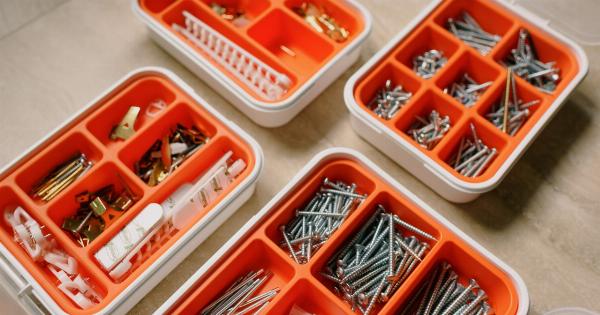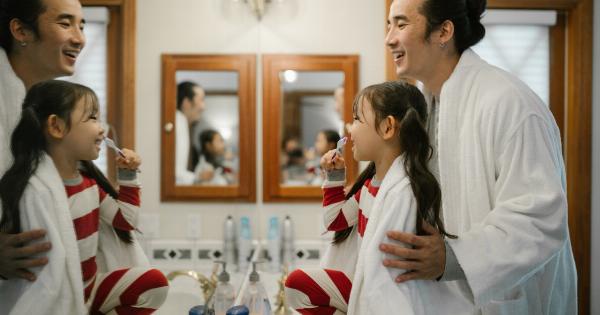When it comes to relationships, happiness is often the ultimate goal. We all want to build strong and fulfilling partnerships that bring joy and contentment into our lives.
While there are many tried and true methods for creating happiness in a relationship, there is one unexpected key that often gets overlooked – self-love.
Understanding Self-Love
Self-love is the act of valuing and caring for oneself. It involves recognizing your worth, taking care of your physical and emotional needs, and prioritizing your own well-being.
And while it may seem counterintuitive to focus on oneself in the context of a romantic relationship, it is crucial to remember that a healthy and happy relationship starts with a healthy and happy individual.
Why Self-Love Matters
When you truly love and care for yourself, you become better equipped to give love and care to your partner.
Self-love allows you to establish healthy boundaries, communicate effectively, and practice self-care – all vital components of a thriving relationship. By investing in your own well-being, you create a solid foundation for a happy partnership.
Healthy Boundaries
Self-love enables you to establish and maintain healthy boundaries in your relationship. When you love yourself, you understand your worth and what you deserve.
You are able to communicate your needs and expectations to your partner effectively, which fosters mutual respect and understanding. Setting boundaries also ensures that you prioritize your own well-being, preventing resentment and burnout.
Effective Communication
Communication is the backbone of any successful relationship, and self-love plays a crucial role in enhancing communication skills. When you love yourself, you possess a strong sense of self-worth and confidence.
This self-assuredness allows you to express your thoughts and feelings openly and honestly with your partner. Effective communication leads to better understanding and deeper emotional connections, creating a happier and more fulfilling relationship.
Self-Care Practices
No relationship can thrive if one or both partners neglect their own well-being. Self-love involves prioritizing self-care and taking the necessary steps to meet your physical, emotional, and mental needs.
This can include activities such as regular exercise, practicing mindfulness or meditation, indulging in hobbies, or seeking therapy or counseling when needed. By actively caring for yourself, you bring your best self to the relationship, contributing to its overall happiness.
Maintaining Independence
While being in a relationship often involves compromise and shared experiences, loving yourself means maintaining your independence. It is essential to nurture your own identity and pursue your goals and interests outside of the relationship.
By doing so, you continue to grow as an individual, bringing new experiences and perspectives to the partnership. Cultivating your own passions and maintaining independence not only keeps you happy but also adds excitement and vitality to your relationship.
Cultivating Self-Compassion
Self-love involves treating yourself with kindness and compassion, especially during times of struggle or failure. It is crucial to acknowledge that everyone makes mistakes or faces hardships at some point.
By cultivating self-compassion, you create a nurturing environment within yourself that extends to your relationship. This compassion allows for understanding, forgiveness, and growth, leading to a happier and more harmonious partnership.
Empowering Your Partner
A relationship should be a place where both partners lift each other up and support personal growth. When you practice self-love, you empower your partner to do the same.
By valuing and caring for yourself, you set an example and create a healthy dynamic that encourages personal development. This mutual growth fosters happiness and fulfillment within the relationship, creating a powerful synergy that propels you both forward.
Building Resilience
Self-love builds resilience – the ability to bounce back from adversity or challenges. Relationships face obstacles, and it is during those times that self-love becomes crucial.
When you love yourself, you have the confidence and inner strength to navigate difficult situations. This resilience not only benefits you but also supports your relationship by providing stability and a sense of security. It allows you and your partner to face obstacles together and come out stronger on the other side.
Nurturing Emotional Well-being
Emotional well-being is paramount in a happy relationship, and self-love is the key to nurturing it. When you prioritize your own emotional well-being, you can better understand and support your partner’s emotional needs as well.
Taking care of your mental health, managing stress, and seeking support when necessary allows you to show up as a more compassionate and emotionally available partner, strengthening the bond you share.
The Power of Self-Love in Relationships
Self-love is the often overlooked key to creating a happy and fulfilling relationship.
By valuing and caring for yourself, you establish healthy boundaries, communicate effectively, and practice self-care – all vital components for a thriving partnership. Cultivating self-love not only improves your individual well-being but also empowers your partner, builds resilience, and nurtures emotional well-being. Remember, a truly happy relationship starts with loving yourself.






























